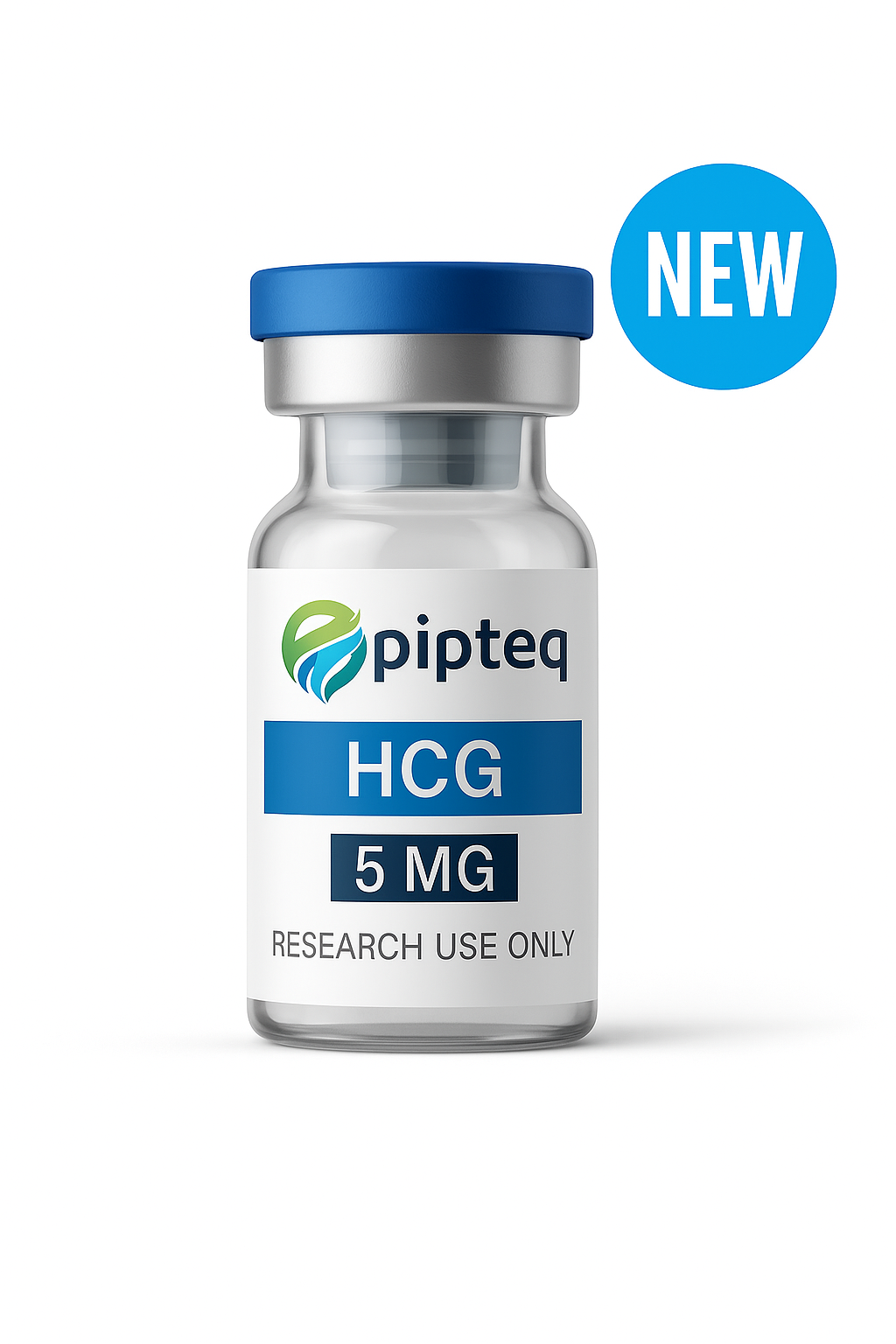💉 HCG (Human Chorionic Gonadotropin): The Multifunctional Hormone for Hormone Balance, Fertility & Fat Loss
HCG, or Human Chorionic Gonadotropin, is a naturally occurring peptide hormone best known for its roles in fertility support, hormone regulation, and weight management. First identified in early pregnancy, HCG is now widely used in medical protocols for men and women, as well as in performance and hormone therapy research.
Whether the goal is testosterone preservation, ovulation support, or body recomposition, HCG has a wide range of potential uses supported by decades of clinical evidence.
🧬 What Is HCG?
HCG is a glycoprotein hormone produced in large amounts during early pregnancy to maintain progesterone levels and support embryo implantation. However, outside of pregnancy, HCG has become a valuable hormone therapy tool, particularly for:
- Men on testosterone replacement therapy (TRT)
- Women with ovulatory or fertility issues
- Bodybuilders seeking post-cycle therapy (PCT)
- Fat loss protocols like the HCG Diet
HCG works similarly to luteinizing hormone (LH), signaling the gonads (testes or ovaries) to produce more testosterone, estrogen, and progesterone.
✅ Top Clinical Uses & Benefits of HCG
🧔 Male Hormone Support & TRT Enhancement
- Preserves natural testosterone production during TRT
- Prevents testicular shrinkage and maintains fertility
- Often used in post-cycle therapy (PCT) to help the body resume endogenous testosterone production after anabolic steroid use
👩 Female Fertility & Ovulation Induction
- Used to trigger ovulation in women undergoing fertility treatments (e.g. IVF or IUI)
- Supports progesterone levels in the luteal phase of the cycle
⚖️ Weight Loss & Metabolism (HCG Diet)
- Originally popularized by Dr. Simeons, the HCG Diet pairs low-dose HCG with a very low-calorie diet (VLCD) for rapid fat loss
- Claims include reduced hunger, fat targeting, and preservation of lean muscle mass
⚠️ Note: The HCG Diet is controversial and not FDA-approved. Research use only.
🔬 How Does HCG Work?
- In men, HCG mimics LH, stimulating Leydig cells in the testes to produce testosterone
- In women, HCG mimics LH to cause follicular rupture and egg release
- May also modulate metabolism and support fat-burning pathways through indirect hormonal mechanisms
📚 Scientific Support & References
- 🔗 PubMed – HCG and Male Hypogonadism
- 🔗 NIH – HCG as an Ovulation Trigger
- 🔗 SelfHacked – HCG Hormone Overview
- 🔗 FDA Label – HCG Injections
- 🔗 Peptide Sciences – HCG for Research
- 🔗 SwissChems – HCG Peptide
🛒 Where to Buy HCG (Research Grade)
- 🔗 Peptide Sciences – HCG 5000 IU
- 🔗 SwissChems – Research HCG
- 🔗 Pipteq™ – UK Peptide Research Supplies (Coming Soon)
- 🔗 PureRawz – HCG 5000 IU
💡 Typical Research Use Guidelines
- Form: Lyophilized powder, reconstituted with bacteriostatic water
- Dose for TRT support (men): 250–500 IU 2–3x per week (research-based protocols)
- Dose for fertility (women): 5,000–10,000 IU one-time injection during ovulatory cycle
- Dose for HCG Diet: 125–200 IU daily with calorie restriction (research only)
⚠️ Important: HCG is a prescription drug in many countries and should only be used under medical supervision or for approved research purposes.
📊 HCG vs Related Peptides
| Peptide | Main Use Case | Common in |
|---|---|---|
| HCG | Testosterone/Fertility Support | TRT, Fertility Clinics |
| Clomid | LH/FSH Stimulation | PCT, Ovulation Induction |
| FSH | Egg/Sperm Maturation | IVF, Reproductive Medicine |
| GnRH Analogues | Pituitary stimulation | Hormone Therapy |
🚀 Conclusion: Is HCG Still Relevant in Modern Peptide Therapy?
Yes. Despite newer options emerging in hormone and peptide therapy, HCG remains a gold-standard tool for:
- Preserving natural testosterone
- Supporting fertility
- Facilitating fat loss in structured protocols
Whether used in a TRT protocol, PCT regimen, or reproductive support plan, HCG is a versatile hormone that plays a critical role in maintaining hormonal balance and physiological integrity.

